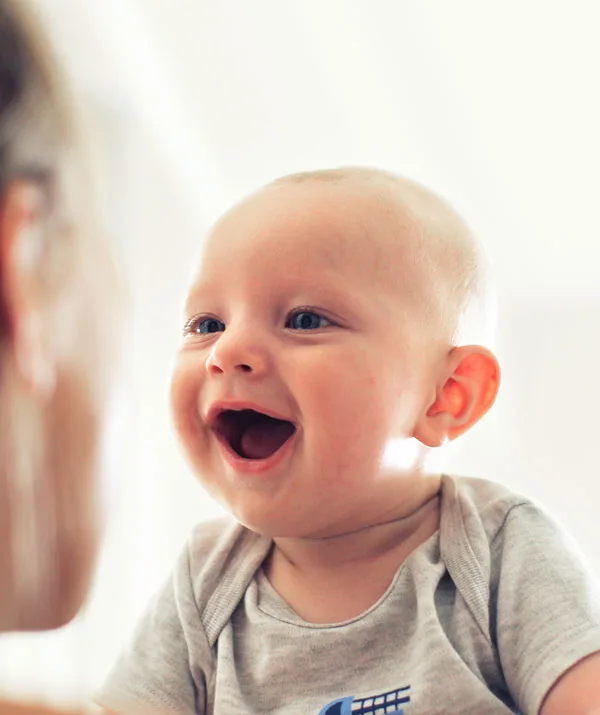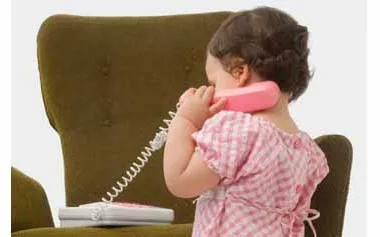When will your baby say “Mama” or “Dada”?
It’s one of the most anticipated milestones for parents and you will likely hear it by the time your bub turns one.
From this point onwards, your child’s vocabulary will steadily increase.

Teach your little one to talk by engaging with them. (Image: Getty Image)
Kimberly Scanlon, a speech therapist and author of My Toddler Talks says we’re naturally wired for communication.
“Your child should go from having about one to a few words at a year old to between 200 and 300 words at two.”
To boost your child’s vocabulary, Kimberly says there are two key things parents can do.
“Limit screen time as studies show children learn from direct human interaction, not screens.”
Secondly, make a daily effort to play with your toddler. “A play routine is a purposeful way of playing that follow predictable sequence. Structuring predictability into play helps children initiate communication because they can anticipate what will happen next.”
Continues after video
According to Raising Children, the following play ideas can help encourage your tot to talk:
• Read books to your child
• Talk about the ordinary things you do each day – for example, ‘I’m hanging these clothes to dry outside because it’s a nice day’.
• Respond to and talk about your child’s interests. For example, if your child is pretending to drive a car, ask him where he’s going.
• Recite nursery rhymes and sing songs. Play rhymes, stories and songs in the car.
• Copy your child’s attempts at words to encourage two-way conversation. Also build on basic words – for example, when your toddler says ‘train’, you can say, ‘Yes, it’s a big red train’.
• When your child is ‘talking’, show that you’re listening by smiling and looking at her. Also praise your child’s efforts to talk.
• Leave time after you talk to give your child a chance to reply. He might not always have the right words, but he’ll still try to respond. This helps children learn about conversation.
• Point to and name body parts, or make it into a game – for example, ‘Where is your mouth?’
While babies develop at there own pace, there are some common language milestones to look out for:
0 to 4 months: Mostly cooing and gurgling sounds. Babies love listening to their parents voice.
4 to 7 months: Babbling begins; sounds like B, D and M are evident.
7 to 12 months: Grunts, squeals and giggles can be heard and usually first words begin around your baby’s first birthday.
18 months to 2 years old: Baby can say several words and begins to put two words together to form a sentence or phrase.
Still waiting?
If by 18 months your toddler isn’t babbling often, isn’t using meaningful words or doesn’t seem to hear you or listen when others are talking, see a GP, paediatrician or child and family health nurse.


.png?resize=380%2C285)